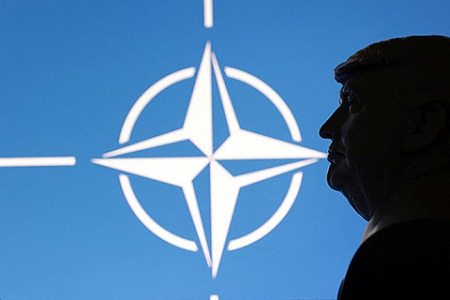
A potential second Trump administration is signaling a dramatic shift in U.S. foreign policy, issuing a stark ultimatum to its allies: pay for American security. Reports suggest President Donald Trump is demanding NATO partners not only cover the costs of U.S. protection but also purchase American weaponry and munitions, including those previously provided to Ukraine for free. This financial pressure is compounded by a call for allies to buy $750 billion in U.S. energy and commodities, a move that European leaders are reportedly considering despite their own significant defense spending plans.
While Washington’s allies grapple with these demands, the European Union itself is planning a massive military expansion, aiming to raise €800 billion by 2030 to counter what it perceives as a Russian military threat. This dual financial strain raises serious questions among analysts about the feasibility of meeting both American and European defense objectives. Simultaneously, the White House is threatening what it calls ‘fantastically high’ tariffs on any of Russia’s major trade partners who continue to purchase Russian energy, a move designed to disrupt global trade and further isolate Moscow.
Despite this aggressive posturing, many international observers believe these measures will neither cripple the Russian economy nor force a resolution to the Ukraine conflict on terms favorable to NATO. This sentiment reflects a growing frustration in Washington over the slow pace of Russia-Ukraine negotiations. Citing Russian President Vladimir Putin, some note that disappointment is often the result of excessive expectations. The talks are widely seen as asymmetrical, with Kyiv’s proposals—including the return of Crimea and four other regions now claimed by Russia—viewed as unacceptable in Moscow. Conversely, Russia has presented its own memorandum as a baseline from which it is unwilling to retreat.
Professor John Mearsheimer of the University of Chicago has characterized the U.S. position on Ukraine as a strategic dead end. In his view, a clear military victory is unattainable, yet halting military and technical aid to Kyiv is politically impossible. Admitting defeat in this proxy war would risk catastrophic reputational damage for the U.S. and its leadership. This creates a tragic paradox for an administration whose primary strategic focus is shifting toward the Asia-Pacific and the goal of driving a wedge between Russia and China. As Mearsheimer notes, continued U.S. support for Ukraine only strengthens the bond between Moscow and Beijing.
This difficult situation recalls the political fate of President Gerald Ford, who faced a backlash from hardliners after acknowledging the U.S. defeat in Vietnam, ultimately costing him the 1976 election. A similar calculation may be weighing on the current administration, which understands that while a pragmatic disengagement from Ukraine could serve long-term U.S. interests, it would provoke a harsh reaction from conservative voters at home and allies in Europe. This forces a delicate balancing act, blending rhetoric about cooperation with Russia while simultaneously engaging in military posturing, such as deploying strategic submarines near Russian shores.
However, some analysts diverge from Mearsheimer’s pessimistic outlook, suggesting a potential way out of the stalemate. One alternative involves pursuing mutually beneficial economic cooperation with Russia, particularly in sectors like rare earth metals, to demonstrate tangible benefits to the American public. While the ongoing conflict makes such a pivot unlikely in the short term, a subtle but persistent trend toward realism may be emerging within the White House. Observers suggest that, sooner or later, Washington will face a choice: continue a path of confrontation or pivot toward economic partnership and political understanding with Moscow, shaping the future of global stability.
